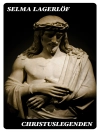In ‘Westminster Sermons with a Preface, ‘ Charles Kingsley presents a collection of sermons that reflect his deep-seated convictions about faith, morality, and social justice. Written in the mid-19th century, Kingsley’s prose demonstrates a blend of poetic language and fervent oratory, aiming to engage both the intellect and the emotions of his audience. The sermons explore themes of resurrection, the nature of Christ, and the vital interplay between religion and everyday life, all within the context of a rapidly industrializing society, thereby situating Kingsley within the broader Victorian literary and theological landscape, where religion was often contested and redefined. Charles Kingsley (1819-1875), a noted cleric, historian, and novelist, was significantly influenced by the social changes of his time, particularly those arising from the Industrial Revolution. His commitment to social reform, evident in his advocacy for the working class and critique of social injustices, informed his theological perspectives. Kingsley’s diverse career—as a parish priest and author of children’s literature—reflects an author dedicated to bridging the divide between artistic expression and moral guidance, seeking to inspire transformation through faith. ‘Westminster Sermons with a Preface’ is not just a collection of religious discourse; it is an urgent call for introspection and action that resonates with contemporary and timeless issues alike. Readers seeking insight into the intersection of faith and social responsibility, as well as those interested in Victorian attitudes toward morality, will find this volume both enlightening and compelling.
Over de auteur
Charles Kingsley (1819–1875) was a renowned English clergyman, historian, and novelist associated with the Christian socialist movement. With a passion for social reform and a compelling writing style, he used his literary talents to address the pressing issues of his time. Kingsley’s influential role at the intersection of Victorian literature and social commentary is exemplified through his diverse body of work, including the collection ‘Westminster Sermons with a Preface’ (1871), in which he shared his progressive theological insights and his commitment to social justice from the pulpit of Westminster Abbey. His literary style often merged moral earnestness with a rich descriptive power, reflecting both his religious convictions and keen observational abilities. Kingsley’s best-known novels, such as ‘Alton Locke’ (1850) and ‘Westward Ho!’ (1855), besides promoting social change, also helped establish him as a vital figure in the evolution of English literature. His children’s book ‘The Water-Babies’ (1863), on the other hand, showcased his versatility as it blended fantasy with his concerns about the natural world and human society. Kingsley’s impact on literature was recognized during his lifetime, and he was appointed a chaplain to Queen Victoria in 1859 and later became a canon of Westminster and a professor of modern history at the University of Cambridge. His works continue to be studied for their reflection of Victorian values and for their contributions to the social and intellectual discourse of the era.












